I suppose the Pakistani army learned this the hard way, although it was always fairly obvious that the Taliban were not going to just back down and go away after being given free reign in one province; as every good zealot knows, if the enemy is weak enough to have one chink in his armour he has two, and then a third - it is just a question of finding them.
The Pakistani authorities now seem to be fighting as successful a campaign as possible against the Taliban. Removing civilians from the Swat valley was tactically a very wise move, depriving the insurgents of their recruits and their human shields in one fell swoop. But every wise move has its down side - the human suffering, obviously, but also the fact that many of the nearly three million refugees are now seething with anger at the government.
The Taliban are especially dangerous because they are not just at war with infidels but with other interpretations of Islam.
Earlier this month suicide bombers found and killed Dr. Sarfaraz Naeemi - a Pakistani scholar who had called suicide bombings illegitimate in Islam.
The problem is that the Taliban is just one manifestation of the tribal rivalries which marr Afghanistan and Pakistan, particularly the frontier; many have equally extreme and old fashioned Islamic practices written into their culture. The mainstream politicians of both countries are forced to make concessions in order to exist.
This has some rather interesting parallels. Winston Churchill experienced this region as a young war journalist in 1897. First, here is what tribal elders who remember their relatives talking about the war against the British said:
The journalists reporting from this region acknowledge they are not the first to cover such a conflict:Back in Islamabad, another retired general, Talat Masood, says that while the army can beat the Taliban, 'it cannot beat the Pashtun tribes'.
Success depends on the Taliban being seen as extremists and outsiders, who subvert, rather than express, the frontier's Pashtun identity. Here the example of Churchill's campaign in 1897 is not encouraging.
Among the people of the frontier, I discover a rich oral tradition, which remembers Swat's 'Mad Mullah' and his comrades as 'mujahideen' - the term for holy warriors once used about the Pashtuns who fought the Soviets in Afghanistan.
'He was a little mad, but he was pious,' says Hazrat Ahmed, 70, in the camp at Katlang. 'So when he said that if they fought the British they would defeat them, the people believed him. There are a lot of graves of martyrs who died fighting the British in 1897.
'Now some people admire the Taliban. Others say they are foreigners, and not good Muslims. Insh'allah [God willing] whoever is right about the Taliban there will be a victory for Muslims, because when Islam is finished, the world will end.'
Nizar Mohammed, 76, explains: 'The jihad against the British was a special type of war, what we call a ghazar. That means a war in which the Prophet has a personal stake. That's how our people saw it.'
Pashtun children still learn songs that commemorate the battles of 1897 and the years that followed.
One of the most haunting celebrates a warrior called Beram Khan. It imagines the words of his wife: 'O Beram Khan, if your body comes back with countless bullets in your chest, I will never mind. But I don't want to hear that you left the battlefield fearing death. O Beram Khan, if you are martyred defending your country, I will weave your shroud with the hair from my head.'
From his very different perspective, Churchill paid an equivalent tribute. Although the fighters of Mohmand and Dir had 'struck a blow at civilisation, civilisation will ungrudgingly admit they are a brave and warlike race. The valley and its people have become historic.'
The causes for the uprising and the phenomenon of tribes uniting is also described:But we weren't the first to cover a conflict against jihadists trying to overthrow a government in this region. Among our predecessors was an Army captain turned reporter who came this way in 1897: the future Prime Minister Winston Spencer Churchill, then aged 23.
That summer the frontier tribes were inspired by radical mullahs to drive out the British. When the revolt started, Churchill was on leave in England from his regiment, which was based 2,000 miles from the front in Bangalore, south India.
But thanks to his acquaintance with the British commander, the curiously-named General Sir Bindon Blood, he secured what would now be termed a media 'embed'. Churchill's first book, The Story Of The Malakand Field Force, was the result.
Reading it now, the parallels between that distant campaign and Pakistan's present crisis seem close, a point clearly recognised by Pakistan's army.
Its chief spokesman, Major General Athar Abbas, says: 'Going through the old Imperial gazetteers, you see ambushes are taking place in exactly the same locations now as they were in the 1890s.
Some of the parallels are too big to ignore; the fact is that whilst the army can defeat the Taliban, the chances of defeating their interpretation of Islam seem slim indeed.Kumbar Bazaar was the home of Sufi Mohammed, the fundamentalist ideologue who led 10,000 frontier Pakistanis to fight the jihad against US forces in Afghanistan after 9/11.
His simple, unprepossessing house has now been trashed by the army, which reduced some of his extensive jihadist library to a pulp by running the books through his washing machine. He is now among the country's most wanted men.
It was Mohammed who earlier this year negotiated a peace deal under which Pakistan's homegrown Taliban were allowed to run the district of Swat, the next valley across from Dir to the east, and it was this deal's speedy breakdown that triggered the army offensive launched on April 26.
Mohammed does not like to compromise. 'We hate democracy,' he told a crowd in Swat's capital, Mingora, earlier this year. 'We want the occupation of Islam in the entire world. From the very beginning, I have viewed democracy as a system imposed on us by infidels.'
Mohammed's damaged home, where the sitting room bears the slogan 'Jihad Is Great' engraved in the plaster in letters a foot high, commands a magnificent view of the mountains around the valley.
Although almost everyone in the area speaks Pashto, the area is far from homogenous. The history of Dir and Swat, which during the Empire were ruled by princes who swore allegiance to the Crown, is different from the wilder tribal areas to the southwest. There the writ of Pakistani law has never run, and one of them, South Waziristan, has long been thought to harbour Osama bin Laden.
Similarly, the radical movement in Dir and Swat is different from the bigger, highly organised Taliban in Waziristan, which has been closely linked with Al Qaeda since 2001 and was responsible for the murder of Benazir Bhutto last winter.
Between 2004 and 2007, while Sufi Mohammed was in prison, the main leader in Dir and Swat was his son-in-law, a former ski-lift operator named Maulana Fazlullah. He built Taliban support through Mullah Radio, an illegal FM station that broadcast his sermons and those of his junior commanders, along with lists of those the movement was targeting for assassination - usually by decapitation.
Now, however, the insurgents from different tribal areas are starting to unite. 'Integration and networking are taking place,' says Lieutenant-General Durrani. 'You now have what amounts to a bigger, Pakistan-wide Taliban group, and it's in their interest to help each other. They're not goofs or fools.'
Brigadier Amal Zada adds: 'Communication intercepts show the militants in Dir have been asking for reinforcements from Swat, Bajaur [another tribal area], North and South Waziristan and from across the Afghan border.'
General David Petraeus, the American commander who led the 'surge' in Iraq and is now responsible for the whole of Asia from Pakistan to the Middle East, has said repeatedly that this alliance, which is also responsible for the spate of terrorist bombings in Pakistan's big cities, poses a threat so great that the country's very existence is at stake.
He might be right. But this is not the first time militants from disparate frontier tribes have been spurred on by radical mullahs to fight as one. It also happened in 1897, as described by Churchill.
Just as in 2009, the 1897-8 campaign began in Swat, when thousands of tribesmen attacked British forts at Malakand and Chakdara less than 20 miles from Kumbar Bazaar.
And just as the 2009 conflict shows every sign of doing, it went on to involve operations the length and breadth of the frontier, from Buner, 40 miles to the north of what is now Islamabad, through the Dir, Bajaur, Mohmand and Khyber areas all the way to Waziristan. The Empire had to mobilise 75,000 troops.
It is easy to see why Churchill felt he could not stay away. His father, Lord Randolph Churchill, had died at 45, and Winston was convinced he must make his mark while young.
'The rising of 1897 is the most successful attempt to date to combine the frontier tribes,' wrote Churchill. 'It will not be the last. The simultaneous revolt of distant tribes is an evidence of secret workings. These features will be more pronounced in the future.'
Like his distant successors, Churchill believed these frontier battles had an 'existential' significance: 'Civilisation is face to face with militant Mohammedanism. When we reflect on the moral and material forces arrayed, there need be no fear of the ultimate issue, but the longer the policy of half measures is adhered to, the more distant the end of the struggle will be.'
His description of the enemy sounds familiar. Churchill singled out a 'Mad Mullah': 'A wild enthusiast convinced of his divine mission preached a crusade, here called Jihad, against the infidel. Even after the fighting - when the tribesmen reeled back from the terrible army they had assailed, leaving a quarter of their number on the field - the faith of the survivors was unshaken.'
In fact, the evidence suggests the 1897 uprising was even more organised than Churchill thought. Behind the 'Mad Mullah', whose fiery sermons could be said to equate to Fazlullah's FM talk shows, stood a group of radical frontier clerics.
As in 2009, the fate of the eastern side of the frontier was bound up with events in Afghanistan. In 1897, the mullahs attended secret meetings in Kabul with Abdur Rehman, the Afghan 'Iron Amir', still smarting from being forced to cede chunks of his country to the British in 1893.
Costly as it was, the 1897-8 campaign ended in victory for the British. But as Churchill realised, it was not the end of the story: 'I do not see any sign of permanency in the settlements that have been made with the tribesmen in Dir, Swat and Bajaur. They have been punished, not subdued; rendered hostile, but not harmless.
As our own young men are dying in Afghanistan, the Taliban are still able to commit atrocities against female school pupils, and the tribal elders are still able to influence the policy of the government paid for with Western blood and Western money in their favour.
.jpg)























































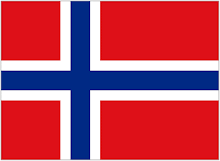
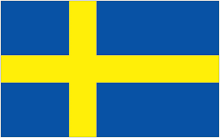






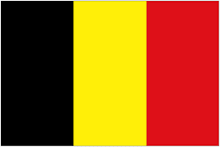

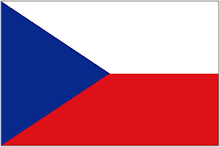











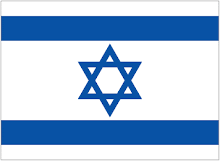




No comments:
Post a Comment